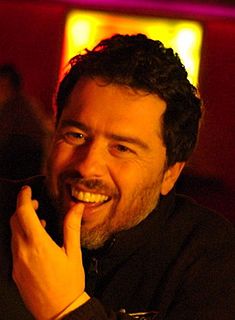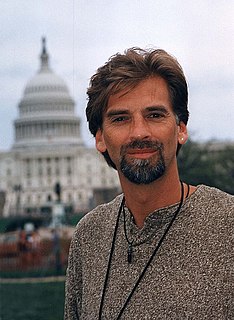A Quote by John Grisham
Stephen King told me a long time ago, when he gave me some advice about the movies. He said to take the money up front and expect it to be something different than the book and if you don't like that don't deal with Hollywood. But if you take the money, shut up and don't criticize the film because you sold it. The movie doesn't change a word of the book.
Related Quotes
Stephen King writes mass fiction but gets reviewed by the New York Times and writes for the New Yorker. Critics say to me, "Shut up and enjoy your money," and I think, OK, I'll shut up and enjoy my money, but why does Stephen King get to enjoy his money and get reviewed on the cover of the New York Times Sunday Book Review?
When you take on Hitchcock you know it's gonna provoke some sort of controversy, because there were so many people talking about the book [Stephen Rebello's Alfred Hitchcock and the Making of Psycho] and wanting it to be the film about the making of this movie [Psycho]. But that's been done. That's been done in the book, and Stephen Rebello himself was like, "I want a movie which is an entertainment for the audience." So we made the conscious decision.
I think it was in sixth grade, though, when I picked up my first Stephen King book, which was 'It,' that knocked me over and terrified me for years. Then I never went back. I had to own every Stephen King book and read them at least three times. They would terrify me completely, but I couldn't stop. That became my preferred source of fiction.
People look at me in many ways. They've said, 'The guy has no regard for money.' That is not true. I have had regard for money. It depends on who's saying that. Some people worship money as something you've got to have piled up in a big pile somewhere. I've only thought about money in one way, and that is to do something with it. I don't think there's a thing I own that I will ever get the benefit of except through doing things with it. I don't even want the dividends from the stock in the studio, because the government's going to take it away. I'd rather have that in (the company) working.
I grew up on particular movies that said something to me as a kid from Missouri, movies that showed me places I'd yet traveled, or different cultures, or explained something, or said something in a better way than I could ever say. I wanted to find the movies like that. It was less about a career than finding the films I wanted to see.
I heard of Martin Luther King Jr. when I was 15 years old. I heard of Rosa Parks. And I met Dr. King in 1958 at the age of 18. I met Rosa Parks ... But to pick up a fun comic book - some people used to call them "funny books" - to pick this little book up, it sold for 10 cents, 12 pages or 14 pages? 14 pages I digested. And it inspired me. And I said to myself, "If the people of Montgomery can do this, maybe I can do something. Maybe I can make a contribution."
The book I am best known for, or only known for, is a novel I am prepared to repudiate: written a quarter of a century ago, a jeu d'esprit knocked off for money in three weeks, it became known as the raw material for a film which seemed to glorify sex and violence. The film made it easy for readers of the book to misunderstand what it was about, and the misunderstanding will pursue me till I die. I should not have written the book because of this danger of misinterpretation.
The first time I ever met Stephen King, he came up to me, and we went to shake hands, and he had, like, this fake rubber rat that he kind of, you know, shook at me. You know, and I said, 'No, this is a cliche - this can't be. Stephen King is trying to scare me with a fake rat?' It was just really weird.






































